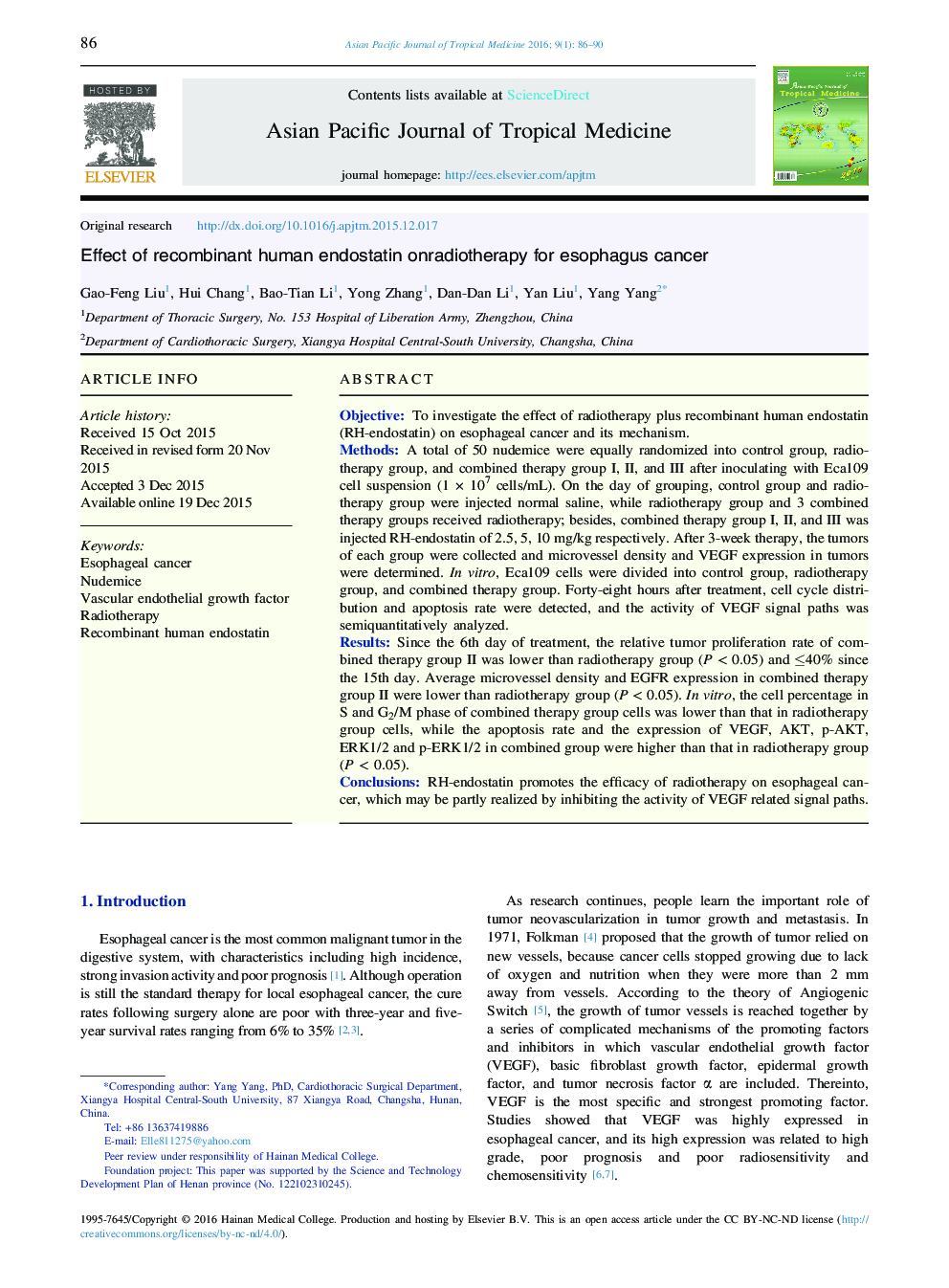| Article ID | Journal | Published Year | Pages | File Type |
|---|---|---|---|---|
| 3455277 | Asian Pacific Journal of Tropical Medicine | 2016 | 5 Pages |
ObjectiveTo investigate the effect of radiotherapy plus recombinant human endostatin (RH-endostatin) on esophageal cancer and its mechanism.MethodsA total of 50 nudemice were equally randomized into control group, radiotherapy group, and combined therapy group I, II, and III after inoculating with Eca109 cell suspension (1 × 107 cells/mL). On the day of grouping, control group and radiotherapy group were injected normal saline, while radiotherapy group and 3 combined therapy groups received radiotherapy; besides, combined therapy group I, II, and III was injected RH-endostatin of 2.5, 5, 10 mg/kg respectively. After 3-week therapy, the tumors of each group were collected and microvessel density and VEGF expression in tumors were determined. In vitro, Eca109 cells were divided into control group, radiotherapy group, and combined therapy group. Forty-eight hours after treatment, cell cycle distribution and apoptosis rate were detected, and the activity of VEGF signal paths was semiquantitatively analyzed.ResultsSince the 6th day of treatment, the relative tumor proliferation rate of combined therapy group II was lower than radiotherapy group (P < 0.05) and ≤40% since the 15th day. Average microvessel density and EGFR expression in combined therapy group II were lower than radiotherapy group (P < 0.05). In vitro, the cell percentage in S and G2/M phase of combined therapy group cells was lower than that in radiotherapy group cells, while the apoptosis rate and the expression of VEGF, AKT, p-AKT, ERK1/2 and p-ERK1/2 in combined group were higher than that in radiotherapy group (P < 0.05).ConclusionsRH-endostatin promotes the efficacy of radiotherapy on esophageal cancer, which may be partly realized by inhibiting the activity of VEGF related signal paths.
